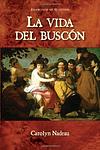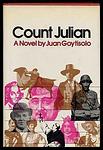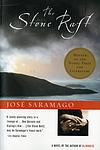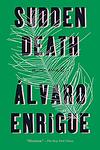The Greatest "Satire, Spain" Books of All Time
Click to learn how this list is calculated.
This list represents a comprehensive and trusted collection of the greatest books. Developed through a specialized algorithm, it brings together 300 'best of' book lists to form a definitive guide to the world's most acclaimed books. For those interested in how these books are chosen, additional details can be found on the rankings page.
Genres
Satire is a genre of literature that uses humor, irony, and exaggeration to criticize and ridicule human vices, follies, and shortcomings. It is a form of social commentary that aims to expose the flaws and absurdities of society, politics, and culture. Satirical books often employ sarcasm, wit, and parody to challenge the status quo and provoke thought and reflection in readers. Satire can be both entertaining and thought-provoking, and it has been used throughout history as a powerful tool for social and political critique.
The "Spain" category of books refers to literature that is set in or about Spain, its culture, history, and people. This category includes a wide range of genres such as fiction, non-fiction, memoirs, travelogues, and historical accounts. Books in this category may explore the rich history of Spain, its diverse regions, its art and architecture, its cuisine, and its people. They may also delve into the country's political and social issues, its traditions, and its contemporary culture. Overall, the "Spain" category offers readers a fascinating glimpse into the vibrant and complex world of Spain.
Countries
Date Range
Reading Statistics
Click the button below to see how many of these books you've read!
Download
If you're interested in downloading this list as a CSV file for use in a spreadsheet application, you can easily do so by clicking the button below. Please note that to ensure a manageable file size and faster download, the CSV will include details for only the first 500 books.
Download-
1. Don Quixote by Miguel de Cervantes
This classic novel follows the adventures of a man who, driven mad by reading too many chivalric romances, decides to become a knight-errant and roam the world righting wrongs under the name Don Quixote. Accompanied by his loyal squire, Sancho Panza, he battles windmills he believes to be giants and champions the virtuous lady Dulcinea, who is in reality a simple peasant girl. The book is a richly layered critique of the popular literature of Cervantes' time and a profound exploration of reality and illusion, madness and sanity.
-
2. The Life of Lazarillo de Tormes by Unknown
"The Life of Lazarillo de Tormes" is a novel that follows the life of Lazarillo, a boy of humble origins from Salamanca, Spain, who becomes an apprentice to a series of masters, each representing different aspects of society. The narrative is a critique of the hypocrisy and corruption of the Spanish society of the time, especially the clergy. Lazarillo's experiences and the lessons he learns, often through deception and trickery, serve as a social and moral commentary on the world around him. The novel is considered one of the pioneers of the picaresque genre.
-
3. Don Juan: A Poem by Lord Byron
This epic satirical poem tells the story of Don Juan, a handsome, charming young man from Spain who gets into various adventures and romantic escapades throughout Europe and the Ottoman Empire. Throughout his journey, he encounters a variety of characters, including pirates, sultans, and aristocrats, while also engaging in numerous love affairs. The narrative, filled with humor, irony, and social commentary, serves as a critique of societal norms and conventions, particularly those related to love and morality.
-
4. The Hive by Camilo José Cela
"The Hive" is a novel set in post-Civil War Spain, during the harsh years of Madrid's postwar recovery. It provides a gritty and realistic portrayal of the struggles faced by ordinary citizens in a society marked by deprivation and repression. The narrative is non-linear and fragmented, featuring a vast array of characters from various social classes, whose lives intertwine in a depiction of the bleakness and despair of the time. The book was initially banned in Spain due to its critical view of Franco's regime.
-
5. The Moor's Last Sigh by Salman Rushdie
This novel follows the life of Moraes Zogoiby, the last in line of a once powerful and influential Indian family. Told from his perspective, Moraes recounts his family's history, starting with his grandparents and moving through to his own life. The narrative is filled with tales of love, betrayal, political unrest, and the supernatural. The protagonist's life is marked by a strange curse that causes him to age twice as fast as a normal human, adding a layer of urgency and tragedy to his story. The book explores themes of cultural identity, family legacy, and the passage of time.
-
6. El Buscón by Francisco de Quevedo
"El Buscón" is a picaresque novel that tells the story of Pablos, the son of a thief and a witch, who aspires to be a gentleman despite his low birth. The narrative follows Pablos's adventures as he navigates through various social classes in 17th-century Spain, from his impoverished childhood to his failed attempts to gain wealth and status through deception and trickery. The novel is a satirical critique of Spanish society, highlighting the corruption and hypocrisy of the nobility and the church.
-
7. Bartleby & Co by Enrique Vila-Matas
"Bartleby & Co" is a metafictional work that explores the theme of "writers of the No," authors who cease to write or never start at all. The narrator, an office worker on sick leave, uses footnotes to a nonexistent text to delve into the stories of these authors, including famous real-life figures. The book serves as a meditation on silence, refusal, and the nature of literature itself.
-
8. Bohemian Lights by Ramón del Valle-Inclán
"Bohemian Lights" is a novel set in early 20th century Madrid, Spain, featuring a group of bohemian artists and intellectuals as they navigate poverty, passion, and the pursuit of their crafts. The narrative captures their struggles and triumphs, the vibrant and decadent world they inhabit, and their unyielding commitment to their artistic ideals. The novel offers a vivid portrayal of bohemian life, with its blend of joy, despair, and relentless creative energy.
-
9. The Life & Adventures Of Don Pablos, The Sharper by Francisco de Quevedo
The book is a picaresque novel that follows the life of Don Pablos, a man who aspires to rise above his lowly birth and become a gentleman. The narrative, rich in satire and social commentary, details Pablos' adventures and misadventures as he engages in various schemes and cons, often with a humorous and ironic tone. Through his journey, Pablos encounters a cast of characters from different strata of society, exposing the vices and follies of the time. His quest for social elevation is fraught with setbacks, reflecting the rigid class structures and moral hypocrisies of the era.
-
10. Larva: Midsummer Night's Babel by Julián Ríos
"Larva: Midsummer Night's Babel" is a complex and innovative novel that explores the nature of language and the power of words. It's a narrative labyrinth that follows a group of characters through the streets of London on a midsummer night, as they engage in a series of intellectual debates and discussions. The story is filled with puns, word games, and literary references, and is written in a unique style that blends poetry and prose. The novel is also a satire of the literary world, with the characters often critiquing and parodying various literary styles and authors.
-
11. Count Julian by Juan Goytisolo
"Count Julian" is a novel that explores the themes of betrayal, revenge, and cultural identity. The protagonist, an exiled Spaniard, reflects on the history of his homeland, Spain, and its past conquests and losses. He identifies with Count Julian, a historical figure who invited the Moors to invade Spain as an act of revenge against the Visigothic King Roderic. The narrative is a critique of Spanish nationalism and cultural identity, as the protagonist dreams of a new invasion to cleanse Spain of its past and present sins. The book's complex narrative structure, nonlinear timeline, and poetic language make it a challenging but rewarding read.
-
12. A Light Comedy by Eduardo Mendoza
"A Light Comedy" is a humorous tale set in Barcelona during the 1940s, centered around a middle-aged woman who, after losing everything in the Civil War, uses her wits and cunning to survive. She turns her apartment into a boarding house for single ladies, but when the business starts to falter, she decides to concoct a plan to marry a rich American. The novel is filled with a colorful cast of characters, and is a satirical commentary on the social and political climate of the time.
-
13. The Stone Raft by José Saramago
In this surreal exploration, the Iberian Peninsula breaks off from the rest of Europe and begins to drift across the Atlantic Ocean. As the governments and international community scramble to understand and respond to the phenomenon, five disparate individuals find themselves drawn together on a journey across the newly isolated landscape. Through their experiences and interactions, the narrative explores themes of identity, nationality, and the arbitrary nature of borders.
-
14. Visions by Francisco de Quevedo
"Visions" is a satirical work that delves into the moral and social decay of Spanish society during the Baroque period. Through a series of allegorical and fantastical visions, the author exposes the vices and follies of various social classes and professions. With sharp wit and a critical eye, the text presents a series of dreamlike scenarios where the dead reveal the hypocrisy, corruption, and pretensions of the living. The work is known for its dark humor, rich language, and the use of grotesque imagery to critique the moral shortcomings of humanity, reflecting the author's disillusionment with the world around him.
-
15. Satirical Letter Of Censure by Francisco de Quevedo
The book in question is a scathing satirical work that employs the epistolary form to critique the moral and social decay of the author's contemporary society. Through the use of a letter, the writer delivers a biting condemnation of the various vices and follies he perceives in the people around him, including hypocrisy, corruption, and intellectual pretension. The text is rich with irony and sharp wit, as the author deftly uses humor to expose the shortcomings of both individuals and the broader cultural milieu, challenging the reader to reflect on the true nature of virtue and the perils of societal complacency.
-
16. The Possibility Of An Island by Michel Houellebecq
The novel explores the life and thoughts of a successful comedian who, disillusioned with the superficiality and decay of human relationships in a hedonistic society, becomes involved with a cult that seeks immortality through cloning and genetic manipulation. As the narrative alternates between the comedian's experiences and the reflections of his future cloned descendants, it delves into themes of existential despair, the search for meaning, and the consequences of eternal life. The story weaves a bleak and satirical tapestry of humanity's obsession with youth, sex, and death, ultimately questioning the very nature of human progress and happiness.
-
17. Leaving the Atocha Station by Ben Lerner
The novel follows a young American poet on a prestigious fellowship in Madrid, Spain, where he grapples with his work, relationships, and sense of self. He struggles with his own perceptions of authenticity, both in his poetry and his personal life, while navigating the cultural and language barriers of a foreign country. The protagonist's experiences are marked by a constant tension between reality and artifice, as he questions the value and impact of his own art in the face of world events.
-
18. Sudden Death by Alvaro Enrigue
"Sudden Death" is a historical fiction novel that revolves around a fictional tennis match between the Italian painter, Caravaggio, and the Spanish poet, Francisco de Quevedo. The narrative jumps through time and space, touching on the conquest of the Americas, the political machinations of the Vatican, and the personal lives and rivalries of historical figures. The book uses this surreal and humorous setup to explore themes of art, power, and the chaotic, violent nature of the world.
Reading Statistics
Click the button below to see how many of these books you've read!
Download
If you're interested in downloading this list as a CSV file for use in a spreadsheet application, you can easily do so by clicking the button below. Please note that to ensure a manageable file size and faster download, the CSV will include details for only the first 500 books.
Download














